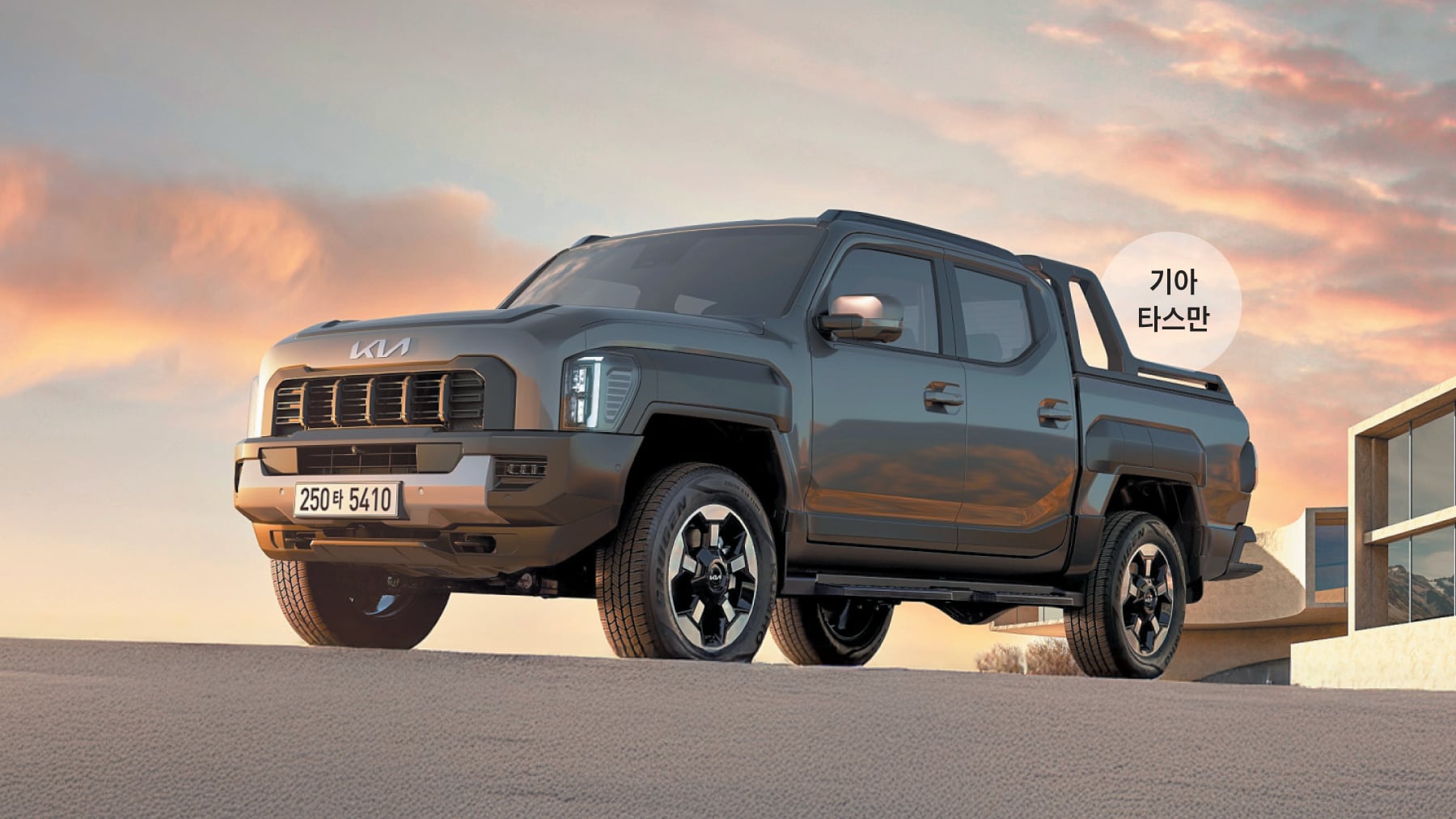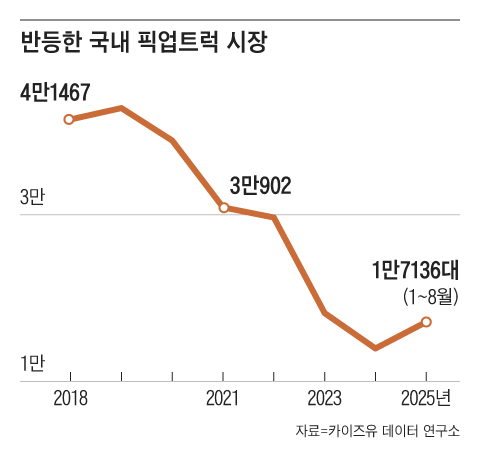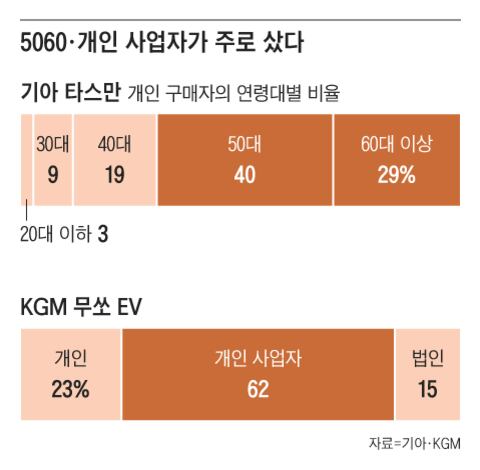
Once dubbed a "pickup truck wasteland," the South Korean automotive market has seen a rebound in pickup truck sales for the first time in six years. Pickup trucks are a popular vehicle category in the U.S., where over 3 million units are sold annually due to its vast land area. However, domestic sales have been sluggish due to perceptions of pickup trucks as "mediocre cargo vehicles" and narrow parking and road conditions. This year, however, the market landscape is changing as Kia and KG Mobility simultaneously launched new models.
According to market research firm KAUZU Data Lab on the 17th, pickup truck sales from January to August this year (17,136 units) increased by 75% compared to the same period last year (9,797 units). This has already surpassed last year's annual sales (13,954 units). A pickup truck refers to a small truck without a cover on the cargo bed, where the passenger compartment ratio is larger than the cargo space.
The pickup truck market was one that domestic companies struggled to enter. After Hyundai Motor's Pony Pickup and others were discontinued in the 1990s, only KG Mobility (formerly SsangYong Motor) has sold some models like the Mussyo Sports. Only a few imported models, such as Chevrolet Colorado from U.S.-based GM (General Motors) and Jeep's Gladiator, which focus on pickup trucks, have been on sale.

◇From 'cargo vehicle' to 'leisure vehicle'
The primary contributors to the market rebound are Kia's Tasman, released in February, and KG Mobility's electric pickup truck Mussyo EV, launched in March. The Tasman recorded sales of 6,152 units as of August. According to KG Mobility, the Mussyo EV achieved its annual sales target of 6,000 units ahead of schedule as of the 16th.
The biggest competitive edge of the two domestically produced pickup trucks is their 'cost-effectiveness.' Both new models start from the 30 million Korean won range in actual purchase price. They offer superior price competitiveness compared to foreign models exceeding 60 million Korean won. Consumers who hesitated due to high prices will undoubtedly welcome this. Familiar infotainment systems and convenient after-sales service (AS) for domestic consumers are also factors driving demand compared to imported vehicles.
The Mussyo EV is particularly popular among individual business owners, accounting for 62% of total buyers. Although the listed price is 48 million Korean won, the actual purchase price drops to the 33 million Korean won range after receiving electric vehicle subsidies and VAT refunds. It is praised for its practicality, with a driving range of 400 km per charge. As a result, it has rapidly emerged as a replacement for 1-ton electric trucks, which were overlooked due to their short driving range.
Changing perceptions of pickup trucks among domestic consumers have also contributed to market expansion. As camping using vehicles becomes more common, pickup trucks capable of carrying large loads are being re-evaluated as leisure vehicles. For example, 69% of buyers of the Tasman, the best-selling pickup truck this year, were aged 50 and above. This significantly exceeds the 50% share of buyers aged 50 and above in the overall new car market. A Kia source said, "It appears that many consumers aged 50 and above, who enjoy leisure activities according to their preferences after their children have become independent, are choosing this model." There is also analysis that pickup trucks are being viewed differently after stars like singer G-Dragon, who drives Tesla's electric pickup truck 'Cybertruck,' became a topic of public interest.

◇Accelerating overseas expansion
As pickup trucks establish themselves as a major vehicle category, expectations for overseas expansion are growing. There is high demand for pickup trucks in regions like Australia, which require long-distance travel, and the Middle East with harsh terrains such as deserts. However, as the domestic market in South Korea overlooked them, related technology development did not progress adequately. For domestic companies, this is the final piece of the puzzle for conquering overseas markets.
Kia has already made the Tasman one of its flagship export products, shipping 7,730 units to Australia, the Middle East, Africa, and other regions by last July. Plans are also in place to launch the Tasman in South America, including Ecuador. KG Mobility is focusing on exporting the Mussyo EV to Europe, where its dealer network is well-established, including Germany, Spain, Hungary, and Norway.
Post a Comment